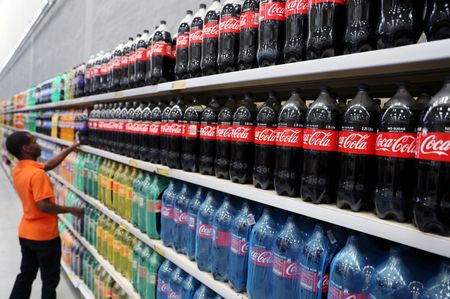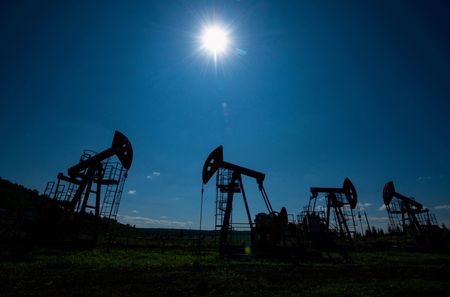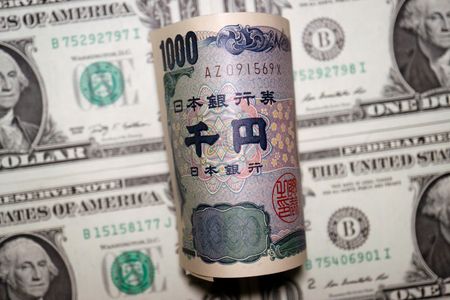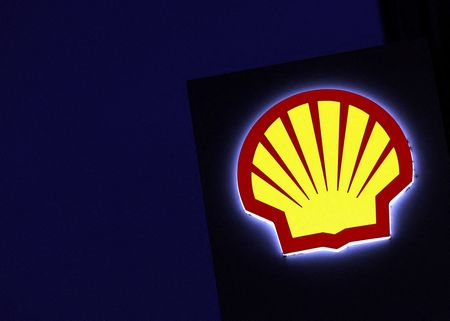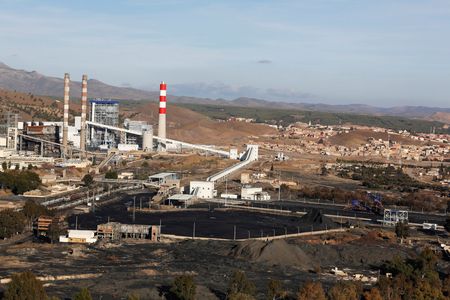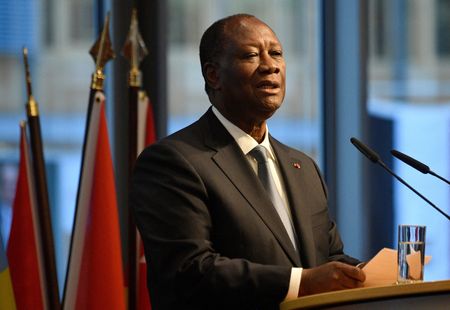By Mohi Narayan and Yuka Obayashi
NEW DELHI (Reuters) -Oil prices dipped in early trade on Friday, trimming part of the previous day’s surge but remaining on track for a weekly gain, as fresh U.S. sanctions on Russia’s two biggest oil companies over the war in Ukraine fuelled supply concern.
Brent crude futures were down 41 cents, or 0.62%, at $65.58 at 0653 GMT. U.S. West Texas Intermediate crude futures fell 38 cents, or 0.61%, to $61.41.
“Crude is levelling off, some profit-taking is setting in, indicating the market is not hitting the panic button over Russian supply,” said Vandana Hari, founder of oil market analysis provider Vanda Insights.
“It is likely to be wait-and-watch mode, until the next twist in the saga, that could be an escalation or a de-escalation,” Hari said. “Looks like the market is betting on the latter.”
Both benchmarks jumped more than 5% on Thursday and were set for about a 7% weekly gain, the biggest since mid-June.
Six-month spreads for Brent and U.S. crude futures returned to backwardation – when contracts for later loading fall below those for earlier loading – having briefly been in contango this week.
That indicates a shift among trader concerns from over-supply to under-supply, allowing them to sell at near-month higher prices instead of paying for storing oil for future sale.
US SANCTIONS TWO MAJOR RUSSIAN OIL SUPPLIERS
U.S. President Donald Trump hit Russia’s Rosneft and Lukoil with sanctions on Thursday to pressure Russian President Vladimir Putin to end its invasion of Ukraine. Rosneft and Lukoil together account for more than 5% of global oil output.
The sanctions prompted Chinese state oil majors to suspend Russian oil purchases in the short term, trade sources told Reuters. Refiners in India, the largest buyer of seaborne Russian oil, are set to sharply cut Russian crude imports, industry sources said.
“Flows to India are at risk in particular… Challenges to Chinese refiners would be more muted, considering the diversification of crude sources and stock availability,” Janiv Shah, a vice president of oil markets analysis at Rystad Energy, said in a client note.
Kuwait’s oil minister said the Organization of the Petroleum Exporting Countries would be ready to offset any shortage in the market by raising production.
The U.S. said it was prepared to take further action, while Putin derided the sanctions as an unfriendly act, saying they would not significantly affect the Russian economy and talked up Russia’s importance to the global market.
Britain sanctioned Rosneft and Lukoil last week and the European Union approved a 19th package of sanctions against Russia that includes a ban on imports of Russian liquefied natural gas.
The EU also added two Chinese refiners with a combined capacity of 600,000 barrels per day, as well as Chinaoil Hong Kong, a trading arm of PetroChina, to its Russian sanctions list, its official journal showed on Thursday.
Russia was the world’s second-biggest crude oil producer in 2024 after the U.S., U.S. energy data showed.
Investors are also focusing on a meeting between Trump and Chinese President Xi Jinping next week as the pair work to defuse long-standing trade tension between the superpowers and end a spate of tit-for-tat retaliatory measures.
(Reporting by Mohi Narayan in New Delhi and Yuka Obayashi in Tokyo; Editing by Thomas Derpinghaus and Christopher Cushing)




